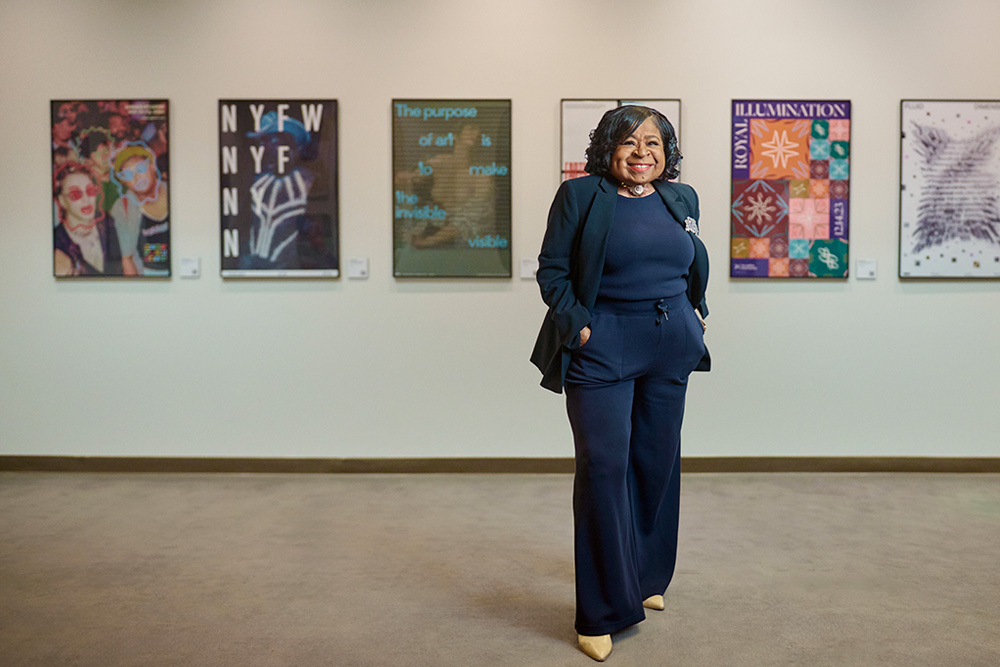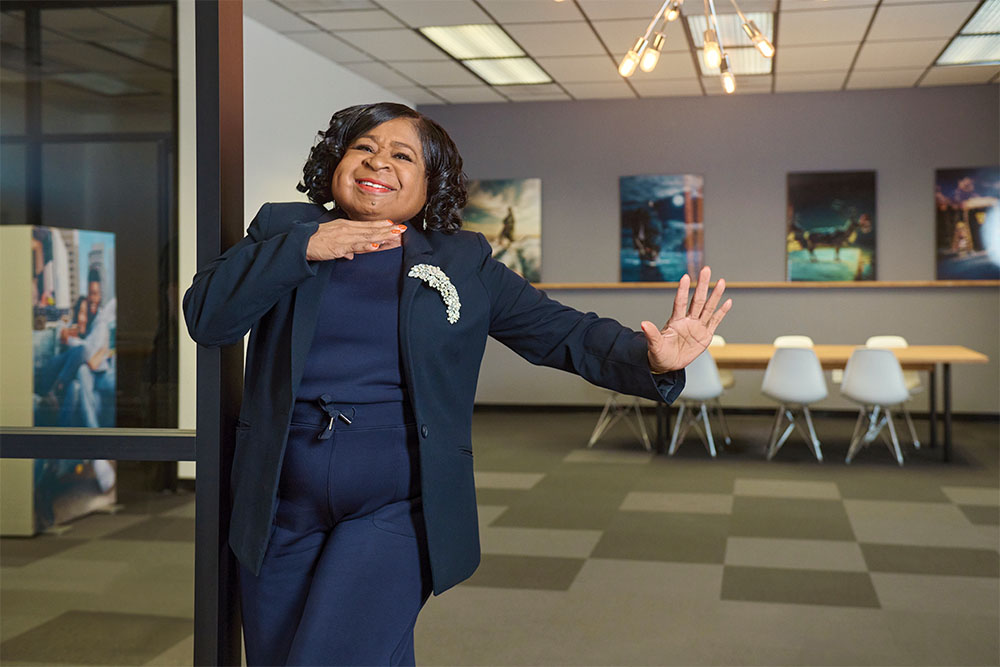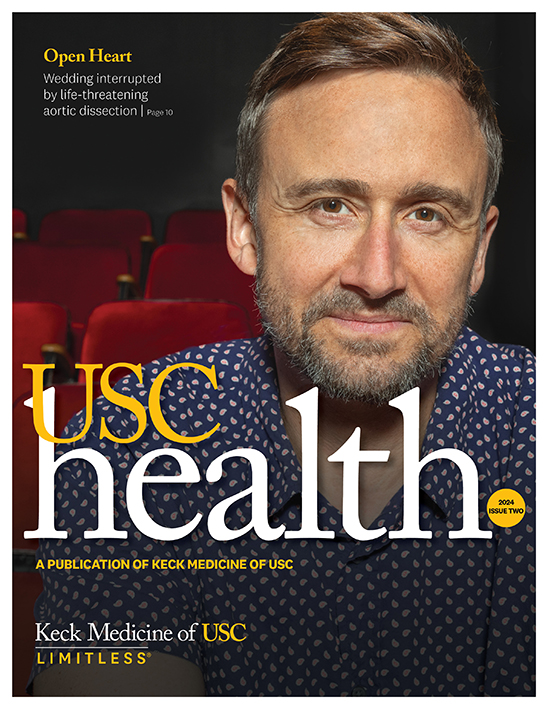
Cora Jackson-Fossett’s laryngeal cancer required a total laryngectomy, the removal of her entire voice box. In recovery, she found a new purpose.
Cora Jackson-Fossett’s voice was a big part of her identity.
As director of public affairs for Los Angeles’ public works department, she often spoke in front of the city council or a clutch of news cameras about important issues facing her department. She was the announcer at her church and a frequent emcee at community events.
After leaving her job at the city, she started a new chapter as an editor for the Los Angeles Sentinel, a newspaper focused on the Black community — another job that involved using her voice, to interview people for stories.
In early 2020, Cora developed an earache that she assumed was not serious. The timing, however, could not have been worse. She made an appointment with an otolaryngologist, but it was delayed for a few months when the COVID-19 pandemic shut down medical offices across California.
By the time she was able to get in, her doctor said the problem with her ear was caused by a tumor in her larynx — one that he would not be able to remove.
Surgical treatments for laryngeal cancer
Cora’s doctor referred her to Niels C. Kokot, MD, an otolaryngologist with the USC Head and Neck Center, part of the USC Caruso Department of Otolaryngology — Head and Neck Surgery, which is part of Keck Medicine of USC.
Dr. Kokot is an expert in all aspects of head and neck surgery, including treating cancers of the larynx and performing microvascular reconstructive surgery.
“It was devastating news,” Cora says. “Dr. Kokot said I needed surgery right away because it was already extremely dangerous and I could die if he didn’t operate right away.”
Cora’s laryngeal cancer was advanced and extremely aggressive, Dr. Kokot says. It had already spread to multiple lymph nodes and was destroying her voice box.
While some people with cancer of the larynx can be treated with chemotherapy, radiation or a partial laryngectomy, Cora, the woman who used her voice so much, needed a total laryngectomy, which would remove her vocal cords and voice box.
It is much more overwhelming not to be able to talk than anyone knows.
Cora Jackson-Fossett, patient, USC Head and Neck Center
With about 12,300 new cases every year, laryngeal cancer is not exactly rare, but also not commonplace. Treating people with laryngeal cancer can be complex, Dr. Kokot says, which is why laryngectomies are usually performed at academic medical centers like Keck Medical Center of USC.
Many people need microvascular reconstructive surgery, a highly specialized type of surgery, after their tumor is removed. All require rehabilitation after treatment.
After laryngectomy, people need to relearn breathing, swallowing and speaking. Getting patients back to living a full life requires tailoring their recovery and rehabilitation to their specific needs.
“We try to be as comprehensive as possible in treating our patients,” Dr. Kokot says, noting that the USC Head and Neck Center team includes not only doctors but also a speech pathologist, a dietitian, physical therapists and occupational therapists who have special training to work with people who have had laryngectomies.
What is recovery like after total laryngectomy?
In addition to a total laryngectomy, Cora had reconstructive surgery on her throat and several months of chemotherapy and radiation. Those first months after her diagnosis were extremely difficult for her, especially losing her voice.
“It is much more overwhelming not to be able to talk than anyone knows,” says Cora, who worked with occupational therapists from Keck Medicine for several months after her surgery to help with depression and anxiety. “I was so frustrated all the time, and I felt really lonely.”
Though there are a few different ways that people can communicate after a total laryngectomy, all of which require training with a speech pathologist, the most common way is to use a prosthesis that the surgeon places in the back of the stoma, the hole in the front of the neck.
In her case, Cora also needed a physical therapist to help regain mobility in her neck and to manage lymphedema, a common side effect of laryngectomy that causes swelling of the neck and face.
A speech pathologist guided her through her options for restoring her voice, and she ultimately settled on the prosthesis.

Life after laryngectomy
Cora also found that, despite strong support from her family and friends, she yearned to connect with people who had been through similar experiences. For that, Keck Medicine’s support group for survivors of laryngeal cancer helped her through.
Now that she has her voice again, Cora is determined to keep using it and finding ways to live her life to its fullest.
She is back at work at the LA Sentinel, continues to be involved in her church and volunteers with several other LA organizations.
One new passion is spending time meeting and mentoring people who are going to have a laryngectomy.
“The whole journey through losing your voice is tough emotionally, and a lot of people struggle,” she says. “They got me back on track at Keck Medicine, and now I want people to know that there is life after laryngectomy.”
Interested in supporting the work of Keck Medicine? Visit this page.
Topics


